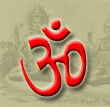Ushering in the New Year
Learn the ancient beliefs behind tonight's big bash
By Helen Buttery at MSN.CA
We celebrate it without question. It's as predictable as Canada's frigid
Januarys, yet New Year's Day is a manmade event. Plus, it wasn't always
celebrated on January 1st.
About 4000 years ago, the Babylonians were the first to observe this holiday
with an 11-day festival, coinciding with the spring equinox (late March) and
planting new crops. Purification ceremonies and tributes to their gods,
especially their chief deity, Marduk, took place. On the 10th day the story of
Marduk's triumph over evil and the creation of mankind was reenacted. Like
today, the Babylonians thought of New Year's as a time of reflection on the year
past and looking ahead to the future. They believed what they did on New Year's
Day would effect the rest of the year. They also made New Year's resolutions,
most commonly to return borrowed farm equipment.
The Romans continued to celebrate New Year's in March, but the holiday soon
became out of synch with the sun as different Emperors tampered with the
calendar system. Astronomers were recruited by Julius Caesar to establish a new
calendar, resulting in a 365-day year of 30 and 31-day months, except for
February. It had 29 days, 30 every fourth year. Augustus made a small adjustment
to the system, taking one of February's days for his own month, August.
Julius Caesar set January 1 as New Year's in 46 BC. Fittingly, January was named
after the Roman god, Janus. He was the god of beginning. Janus was usually
pictured with two bearded heads placed back to back so that he might look to the
past, as well as to the future.
Like many holidays, New Year's was considered pagan by the church. Yet, in a bid
for new recruits it celebrated religious observances, in this case the Feast of
Christ's Circumcision, concurrently with non-Christian holidays. However, the
symbol of the New Year's baby doesn't represent Jesus. The tradition began
around 600 BC in Greece. Egyptians, too, used a baby as a symbol of rebirth. The
Germans who used the image since the 14th century brought the representation to
early America.
Today, many historic New Year's traditions — resolutions for example — and
symbols — like the bannered baby — remain. Yet there are some newer additions.
Auld Lang Syne, a Scottish song meaning "old long ago" was written partially by
Robert Burns in the 1700s. It is sung by almost every English speaking country
at the stroke of midnight to usher in the New Year.
Then of course, there is the Rose Bowl. The Tournament of Roses parade paved the
way for the annual football game and was started in the 1890 in Pasadena,
California to celebrate the ripening of oranges. More than 2000 people watched
the flowered-covered floats and participated in such games as tug-of-war. This
year the parade is five and a half miles long and an estimated one million
people will attend.
|

